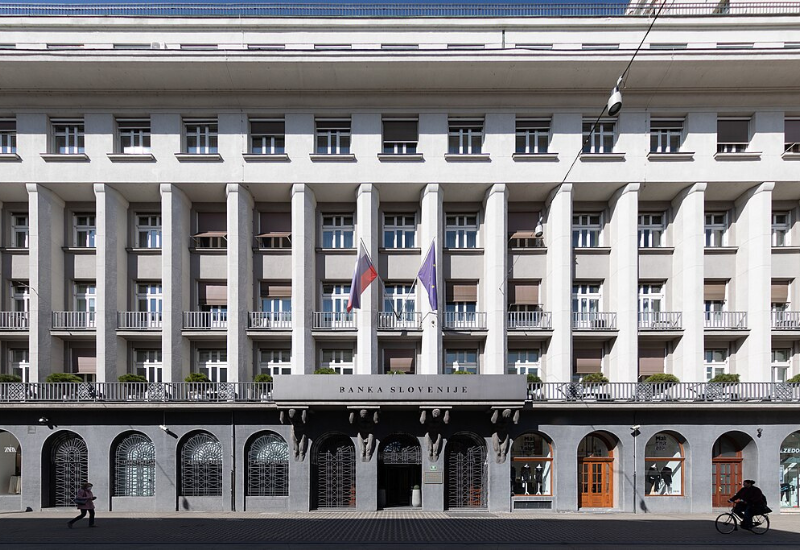
Bank of Slovenia: Sector income to decline in 2025 - EXCLUSIVE
The Bank of Slovenia has attributed the 12.5% year-on-year decline in net interest income in Q1 2025 to expected market developments following record-high interest rates in late 2023 and early 2024.
In an exclusive response to CE Report, the central bank explained that interest income had peaked due to elevated rates across financial markets, contributing to exceptional profits for Slovenian banks last year. The subsequent decline reflects a return to more typical levels and mirrors trends seen across the euro area.
“Slovenian banks have very low funding expenses due to the dominance of sight deposits, so changes in market interest rates are quickly reflected in falling net interest income,” the Bank stated.
The Bank confirmed that the decline in profit is primarily driven by the European Central Bank's monetary policy easing, rather than domestic lending conditions or external shocks.
“Bank lending conditions have actually improved for both businesses and households, thanks to lower interest rates and loan margins,” the Bank noted, emphasizing that the profitability trend is not caused by weakening credit activity.
Despite reduced profitability, the Slovenian banking sector remains resilient. Lending to households is rising, while corporate lending remains subdued. Importantly, the central bank sees no significant changes in credit issuance or operational structures.
“The cost-to-income ratio remains well below the long-term average, and we are not seeing notable shifts in risk appetite or expenses,” the Bank added.
The Bank of Slovenia cautioned against viewing the current phase as a downturn, stressing that the system is transitioning from record highs to a more normalized state.
“The net interest margin is still significantly above its long-term average,” the Bank said, underlining that profitability, while declining, remains strong in historical context.
Looking ahead, the Bank expects further declines in net interest income in the second half of the year, largely due to softening interest rates and potentially lower loan demand amid ongoing economic uncertainty in Europe.
Nonetheless, the banking sector continues to benefit from its favorable funding structure - characterized by near-zero remuneration on sight deposits and low rates on term deposits. This structure provides a cushion, helping banks maintain relatively stable income levels.
The Bank also observed that Slovenian lenders are actively reallocating funds from low-yielding ECB reserves to higher-yielding securities, further supporting income stability. Non-interest income remains steady, with only minor fluctuations from one-off events.
However, one long-term factor weighing on net income will be a slight increase in operating costs due to the tax on total bank assets.
“A pronounced drop in net interest income would only occur if the ECB were to make substantial further rate cuts, which now appears unlikely,” the Bank concluded.
Photo: The Bank of Slovenia
This interview was prepared by Abdul Karimkhanov
























